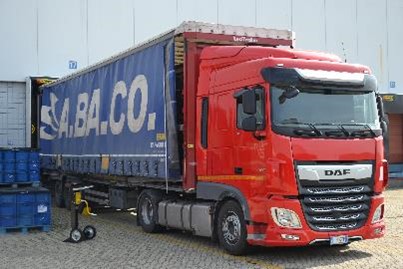Conformity Assessment in Automotive Supply Chains

In one of our latest blogs we referred to the several public and private companies involved in the Supply Chain Services and we zoomed in the services provided by the port authorities and in particular the Valencia Port Authorities. In this blog we will explore the SCS from the manufacturers’ point of view and in particular of Centro Ricerche FIAT ScpA.
The Automotive Inbound Logistics
The automobile manufacturer purchases and consumes components from several auto parts suppliers for the vehicle assembly and for complex auto parts. In particular, the manufacturer requires several thousands of components (and even more different variants and part numbers) that are assembled to the vehicle for the production of automobiles. For the assembly plants, the network of suppliers provides more than 4000 components, transported, managed and finally assembled in the vehicles.
The operations in Automotive logistics are characterised by the omnipresence of CPS devices (IoT, sensing platforms). These devices interact to ensure transparency, visibility and business continuity in the logistics processes. They are attached to logistics robots, components and containers. They provide and receive crucial information for the process. For example, in Inbound Logistics, devices provide the contents of containers, the quantity and destination. Additional sensors provide the localization, plus eventual metrics (e.g. temperature, vibration/ shocks). This data is transmitted to the plant, in particular for critical components (e.g. JIS, JIT ones) remotely and when the components access the Stellantis premises. Services providers operate from suppliers to the plant and from the plant to the final car dealer in a multimodal network: railway operators, truck operators, harbours operators and maritime transport for overseas transportation.
It is becoming clear that the Inbound Logistics is a complex process with numerous players, including shippers, manufactures, transport operators that involve the manufacturing, shipment and delivery of various types of components by means of trucks, ships, etc. Different Supply Chain Services (SCSs) are involved: domestic and international transportation, communications and information technology, warehouse management, order and inventory control, materials handling and import/export facilitation, among others. Various stakeholders and actors, having different goals and requirements, interact in order to perform each SCS.
Among the key entities/stakeholders involved in this SC service are the following:
- Components suppliers
- Intermediate assembly plant
- SCs managers
- Warehouse manager
- Supply service provider
- Vehicle assembly plant
CYRENE pilot demonstration
During the first phase of the project, the main objective is the definition of the scenario for testing and demonstrating the CYRENE Conformity Assessment process.
Three different perspectives have been considered in CYRENE: the business, the technical and the sectorial views. The first one focuses on the SCS processes and business partners interacting to meet these processes; the second one is related to the SCS processes, the involved business partners along with the operating SC assets that are involved and participate in the operation and provision of the SCS; finally, the third one reflects sector-specific processes of one business partner (namely, Centro Ricerche FIAT ScpA and its World Class Manufacturing Research and Innovation (WCM R&I) department.
The sectorial view of the CYRENE project will conduct an analysis of the ICT infrastructure operating within the Automotive Inbound Logistics processes and assets.
In fact, the SC processes considered here are related to the Inbound Logistics phases of components shipment, from the assembly plant to the production plant, and they are listed as follows:
- Supply of partial-assembled components
- Supply of the finished components
- Monitoring of components during transportation
- Vehicle Assembly
The phases mentioned above are linked to the whole Vehicle Transport Service (see the previous article by Valencia Port Foundation for more details here). They will be taken into consideration for developing and testing the demonstrator from the sectorial perspective, under the lead of Centro Ricerche Fiat S.C.p.A. (within Stellantis company).
Do you have experience in cybersecurity in the field of Automotive Supply Chains? Have you ever faced cybersecurity issues in your Supply Chain?
Reach out to us and share your views either by using our contact form or by following our social media accounts in Twitter and LinkedIn. Don’t forget to subscribe to our Newsletter for regular updates!
Signed by: The CRF team
KEY FACTS
Project Coordinator: Sofoklis Efremidis
Institution: Maggioli SPA
Email: info{at}cyrene.eu
Start: 1-10-2020
Duration: 36 months
Participating organisations: 14
Number of countries: 10
FUNDING
 This project has received funding from the European Union’s Horizon 2020 Research and Innovation program under grant agreement No 952690. The website reflects only the view of the author(s) and the Commission is not responsible for any use that may be made of the information it contains.
This project has received funding from the European Union’s Horizon 2020 Research and Innovation program under grant agreement No 952690. The website reflects only the view of the author(s) and the Commission is not responsible for any use that may be made of the information it contains.
